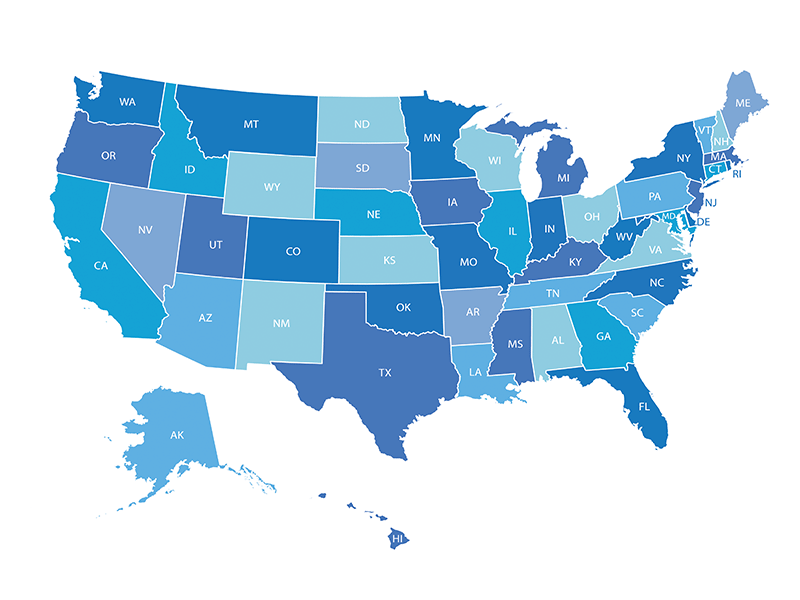Will My SSDI or SSI Benefits Transfer Between States?

Learn more below about what benefits transfer between states.
If you currently collect Social Security Disability Insurance (SSDI) or Supplemental Security Income (SSI), you might wonder if your disability benefits transfer when you move out of state. Depending on the state you’re moving from and the state you’re moving to, your benefits might increase or decrease. Below, we go over everything you need to know regarding SSDI or SSI benefits and what may happen as you move from one state to another.
Will I Have to Reapply for SSDI or SSI?
Both SSDI and SSI are federal disability benefit programs. Typically, that means you won’t need to reapply for SSDI or SSI benefits when you move to another state. However, if you’re planning a move, you should immediately notify your local Social Security Office of an address change. Typically this can be done online. Sign into your My Social Security account to change your address. Or, call Social Security by phone toll-free at 1-800-772-1213 for further assistance.
If I don’t need to reapply, why do I need to update my address? When you move to another state, you want to avoid delays in receiving your Social Security disability benefit checks. Updating your address will help ensure that your disability benefit checks are sent to your new address – not to your old one. Additionally, keeping your SSA records up to date makes it easier for the SSA to communicate with you about your SSDI and SSI eligibility and relay any important information.
Will Moving Affect My State Supplement?
Depending on the state you’re moving from and the state you’re moving to, your total SSI benefits might increase or decrease. For example, Arizona, Mississippi, West Virginia, North Dakota and the Northern Mariana Islands don’t offer a state supplement. States that administer their own supplemental payments include:
- Alabama
- Alaska
- Arkansas
- Colorado
- Connecticut
- Florida
- Georgia
- Idaho
- Illinois
- Indiana
- Kansas
- Kentucky
- Louisiana
- Maine
- Maryland
- Massachusetts
- Minnesota
- Missouri
- New Hampshire
- Nebraska
- New Mexico
- New York
- North Carolina
- Ohio
- Oklahoma
- Oregon
- South Carolina
- South Dakota
- Tennessee
- Texas
- Utah
- Virginia
- Washington
- Wisconsin
- Wyoming
In California, Delaware, District of Columbia, Hawaii, Iowa, Michigan, Montana, Nevada, New Jersey, Pennsylvania, Rhode Island and Vermont, Social Security administers the state supplement. For the most current information regarding state supplements, refer to the Social Security website. You can also get in touch with your state for payment information. It is possible you may need to reapply for supplement benefits in your new state.
I’m Moving In With Someone Else. Will My SSDI or SSI Benefits Change?
For the most part, your SSDI payments will not change when moving from state to state. That’s because they’re based on your work and income history. However, if you plan on moving in with a friend, significant other or family member in another state, your SSI benefits could be affected. Unlike SSDI, SSI is based on financial need. So, if you’re moving in with someone who will be supporting you financially or who collects SSI, your SSI eligibility or benefit amount could change. Therefore, if you have similar circumstances, make sure to inform the SSA right away.
Are you planning to move to Maryland? Receive the SSDI and SSI benefits you’re eligible for with help from Disability Support Services. Contact us today to learn more about disability benefits.



